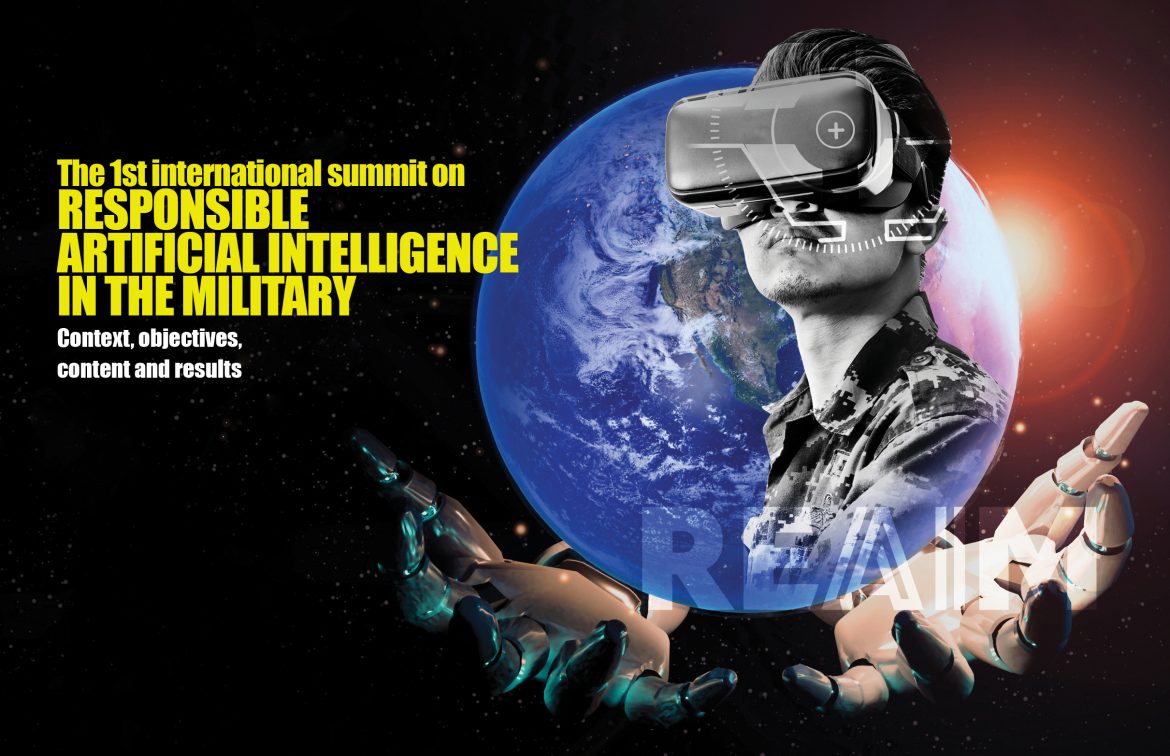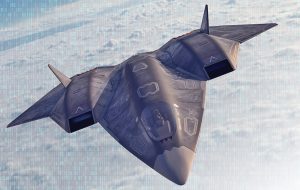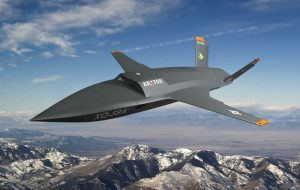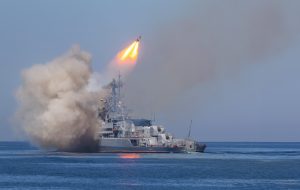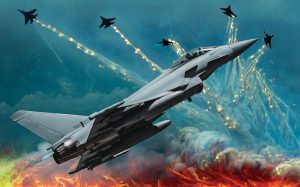Artificial Intelligence (AI) is making fundamental changes in our modern world, including in the military field, creating unprecedented opportunities for enhancing human capabilities, especially regarding the decision-making process. However, it raises major legal, security and ethical concerns on several levels, such as the lack of complete human control, transparency, reliability, accountability and bias, as such concerns are magnified in the high-risk military sector. In this context, the Dutch government (the Ministries of Foreign Affairs and Defence) hosted, on February 15 and 16, the first global summit on responsible artificial intelligence in the military field (REAIM 2023).
The summit aimed to provide a platform for all stakeholders and interested parties to discuss the main opportunities, challenges and risks associated with artificial intelligence applications in the military field.
The Republic of South Korea participated in organizing the conference which was held in The Hague, Netherlands and its next session will be held in South Korea.
Both the Netherlands and South Korea are pioneers in the dialogue on the responsible use of AI in the military field.
Participants in the summit included foreign ministers and other government delegates, in addition to representatives of knowledge institutions, think tanks and industry as well as civil society organizations.
Furthermore, the summit was attended by more than 2,000 participants including companies, civil society organizations, academic circles, think tanks and research centres from 100 countries along with 80 government representatives.
Key activities included in the summit were 4 high-level sessions, 35 round tables and 20 presentations of artificial intelligence applications in military fields, in addition to an academic forum, talk shows, a workshop to present innovative ideas, and another for new students and researchers, all of which aimed to achieve one goal, the coordination of efforts for the responsible use of artificial intelligence in the military field. Having briefly explained the context of the first international summit on responsible artificial intelligence in the military field, this intensive study aims to present in the following lines the summit’s most important goals, topics and results.
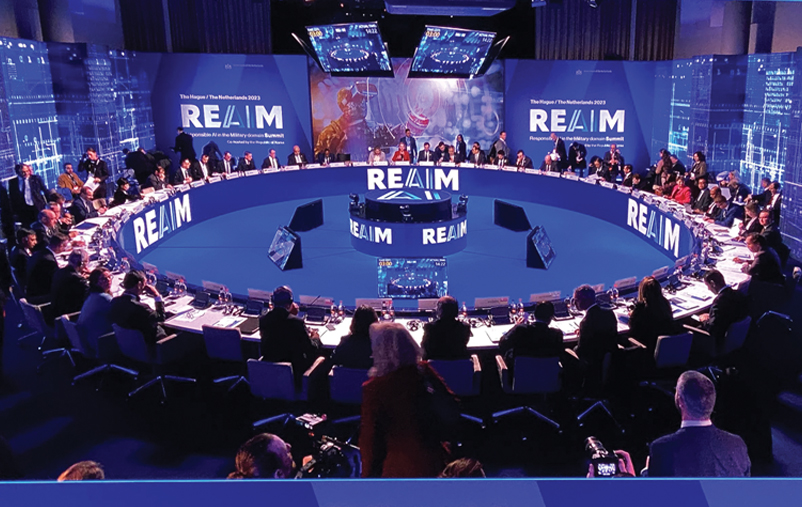
1. The main objectives and the mechanisms for achieving them
The development, deployment and use of artificial intelligence in the civilian sphere continue unabated, thus the scope of military application will increase in the coming years, which raises questions for the international community about how to deal with the inevitable military application of artificial intelligence responsibly, regarding the use of force and methods of protecting civilians.
For this purpose, the organizers of the summit invited more than 100 world-renowned specialized academics with practical experience to answer the following questions: How reliable are the results produced by the algorithm? How do we improve human-machine interaction? How do we ensure that AI remains a tool that serves people always subject to human control, including in conflict situations?
The answer to these questions represents the most important dilemmas that require a balanced international discussion, some of which have already been addressed at previous global events by players in the field, such as the Group of Governmental Experts (GGE) on Emerging Technologies in the Field of Lethal Autonomous Weapons Systems, which discussed the applicability of international law to autonomous weapons systems and the role of human control.
The most important goals of the 1st REAIM summit included:
Putting the issue of responsible artificial intelligence in the military field at the top of the political agenda in the world.
Activating the role of a wide range of stakeholders in creating concrete next steps to achieve the first goal.
Promoting and increasing knowledge related to responsible artificial intelligence in the military field, through the exchange of experiences and best practices and solutions.
Summit Axes
Analyzing the characteristics of AI by discussing what we need to know about the technical aspects of AI to understand how it can be applied responsibly in a military context.
Studying ways to responsibly disseminate and use artificial intelligence, by discussing what the military applications of artificial intelligence mean? What are the main benefits and weaknesses of AI?
Theorizing frameworks for the governance of the responsible use of AI, by examining existing frameworks to ensure that AI is applied responsibly in the military field and then working to strengthen them with additional frameworks that can promote the responsible use of AI in the military field and enable stakeholders to contribute to this.
2. The most important events and what the summit covered
Keynote speeches
The keynote speakers at the summit included Ms Marietje Schaake, international policy director at Stanford University Cyber Policy Center, who emphasized that despite the attempts to address and mitigate human rights challenges and other issues arising from the use of artificial intelligence and automated decision-making technologies in both the public and private sectors, significant gaps exist in the use of AI for national security and military purposes, including in the area of autonomous weapon systems.
Workshops
The most significant of which was a workshop on the opportunities offered by artificial intelligence, in addition to the challenges it poses regarding achieving stability in conflict areas, through a multidisciplinary approach for identifying and dealing with risks.
Simulations (a day in the life of an AI user in the military)
Challenges arise when we want to translate the principles of responsible use in the military into practice, as questions such as: “Do we prefer an open and transparent system over a private and secure one?” must be tested in practice.
The interactive simulation model allows for a realistic military scenario using artificial intelligence and every time a decision is made, the audience will have a difficult choice to make and their choices will determine how the story unfolds through in simulation model.

Polls
As a part of the annual NATO polls, the summit conducted a poll, to measure how much ordinary people know about artificial intelligence and its military applications, and how they see the use of artificial intelligence and automated and autonomous weapons as a threat to humanity or a blessing for the human soldier in complex situations and a way to limit losses?
Panel discussions
The most important panel discussions included:
A session on common civil and military challenges in regulating artificial intelligence
The session discussed the common challenges of regulating the use of artificial intelligence in the civil and military sectors and the measures that policymakers can take to ensure the protection of human rights and international humanitarian law, to ensure accountability in the main areas in which artificial intelligence technologies and automated decision-making are used, including in the areas of National security and defence.
A session on The Trustworthy Collaboration between Man and Machine: The Next Phase of Evolution
This session discussed how humans and AI can successfully collaborate in military contexts, including safe reconnaissance and perimeter protection.
A session on Addressing the Ethical and Technical Challenges of AWS
The session revealed more than 60 ethical and technical challenges regarding the development, use and management of autonomous weapons systems, discussing how to deal with these ethical and technical challenges to determine what can go right or wrong at each stage of the life cycle of these weapons, and how human decision-making at each stage affects the results of their use.
A session on whether to use artificial intelligence or not?
(It aimed to debunk popular ideas about military artificial intelligence)
This session was organised by Chatham House to rethink some of the common ideas that may lead to potentially ineffective or even harmful decisions regarding the use and management of AI.
A session on reducing the potential harm of artificial intelligence to civilians and mitigating the effects of war
The session discussed how to use artificial intelligence to reduce harm to civilians and mitigate the effects of war, discussing whether the benefits of artificial intelligence to civilians outweigh its risks.
A session on the suitable AI framework for the military field; development and critical evaluation
The session discussed the most important risks of using artificial intelligence including privacy breaches, embedded bias, potential abuse, and unintended consequences, proposing a specific approach to meaningful human control that could contribute to the development of the responsible use of AI in the military domain.
A session on Linking Artificial Intelligence with Security: Artificial Intelligence Threats, Measures and Guarantees
The session discussed some countermeasures to hostile AI attacks, producing a booklet on the subject that brought together experts in AI and cybersecurity experts.
A session on the Era of Artificial Intelligence & The Responsible Innovation of Military Artificial Intelligence
The development of artificial intelligence systems requires close cooperation between the end user, industrial, technological and commercial institutions, think tanks and research centres. The session discussed best experiences and practices related to the development of a responsible AI.
A session on The Use of Artificial Intelligence in Innovation in the Fields of Military Industrialization
This session explored how artificial intelligence can shape and influence the world’s strategically important militaries.
A session on The Development and Deployment of Responsible AI in a Multinational Military Environment
The session discussed how to apply the NATO principles for the responsible use of AI in the military sector, which is achieved through the following tools:
- Analyzing AI trends through insights into civil technology research in various fields, fueled by several million academic papers.
- Standards analysis by comparing over 244,000 military and commercial standards to give guidance on applicable standards.
- Assessment of flexibility in the use of artificial intelligence in the military field, using several different open and non-open data sources to present the extent of flexibility for each of the 7 core areas of NATO.
A session on the Extent of Countries’ Commitment to Protecting the Cybersecurity of Their Autonomous Weapons
This session attempted to answer whether states are obligated to protect the cybersecurity of their weapons and protect civilians from the misuse of those weapons.
A session on The AI Revolution in Military Affairs
That session was dedicated to answering the following questions: Can artificial intelligence create a new revolution in military affairs? What is the impact of this technology on strategic stability and current arms control mechanisms?
A session on Civilian Lessons for the First Armies in the Responsible Use of AI
This session highlighted the similarities between civic initiatives around the world aimed at enhancing the benefits of using artificial intelligence and reducing its risks.
A session on Decision Support Systems and Human-Machine Interaction (HMI)
The session provided multiple insights into how to design and orchestrate effective human-machine interaction (HMI) in the context of military decision support systems.
A session on How to Come Up with a Practical Approach to Responsible AI
This session discussed the best and worst practices of using artificial intelligence.
A session on How To Integrate The System of Values in the Manufacture and Use of Weapons Enhanced by AI
The nature of the military field makes activating values and principles in its industrialization difficult. This session aims to answer the following question: How do we ensure and assess that military technology is designed and used responsibly?
A session on The Challenges Of Drones
The emergence of swarms of artificial intelligence-powered drones on the battlefield will have tactical, operational and strategic repercussions.
As it promises broad and profound changes in military operations, and this interactive session explored these changes on the geopolitical, legal and ethical levels.
A session on The Irresponsibility of The Reductive Discussion of The Use of AI in the Military Field
The session found that AI technologies should occupy a much broader scope than what the current mainstream debates on the ethics of military AI suggest as the predominant focus is on lethal autonomous weapons systems.
Furthermore, participants emphasized that the discussion should not be limited to the dangers of military AI but includes the opportunities it presents.

The Academic Forum
Scholars and experts from various disciplines met to discuss relevant legal, ethical, philosophical, and technical dilemmas and opportunities in the field of responsible development and use of military AI. The forum aimed to establish a dialogue between academics, military personnel, and political decision-makers on:
- How to scale up the use of responsible AI in governments and militaries.
- The use of hybrid AI systems for security and autonomy.
- How to make artificial intelligence a trusted advisor in military decisions.
- How to reach a new strategic political and technical framework for developing digital defence capabilities.
- How to develop reliable algorithms for military robots in complex environments.
3. The Most Important Results of the Summit
A Permanent Global Committee on Responsible AI in the Military Field
Summit participants stressed the need to put the responsible use of AI at the top of the political agenda of governments and international organizations and to further promote initiatives that contribute in this regard.
Thus, the summit established a permanent global committee on artificial intelligence to raise overall awareness, clarify how to responsibly use it in the military field, determine how to responsibly develop, manufacture and deploy this technology, and define the conditions for effective governance of AI in the military field.
Developing A Common International Agenda
The responsible use of artificial intelligence in the military field is guaranteed within the parameters of current international law. With the aim of:
- Assisting countries in taking the necessary steps regarding the responsible application of artificial intelligence in the military field.
- Concluding agreements between countries and other relevant actors.
- Coordinating the efforts of various existing consultative structures, including those belonging to the United Nations and various regional organizations.
- Ensuring the existence of a constructive dialogue through the exchange of knowledge and experience.
- Cooperating with knowledge institutions, civil society organizations, the private sector and political actors.
- Updating the agenda regularly through developments and new studies in the field.
In this context, Wopke Hoekstra, Minister of Foreign Affairs, added reaching international agreements in this field to the work of the committee and stated that the Netherlands will remain the driving force behind these efforts.
For her part, Dutch Defence Minister Kajsa Ollongren stressed that artificial intelligence is of crucial importance for the future of armed forces, stating that artificial intelligence can do the following for armies:
1. Making military missions operationally and logistically simpler and more efficient.
2. Enabling us to make faster and more informed decisions, thus protecting our forces and limiting harm and losses as much as possible, to ensure the responsible use of artificial intelligence by continuously working closely with our partners within existing alliances, such as the EU and NATO, as well as NGOs and thought, study, educational and knowledge centres and institutions, as well as companies. By doing so, we will invest in our democracy and our freedom.
Conclusion
Artificial intelligence is developing rapidly, and humanity must prepare to take the necessary measures as soon as possible. Therefore, the summit aimed to prevent the misuse of artificial intelligence in the military field and to educate the international community on the potential risks of using AI and the importance of responsible development and use of AI.
In this context, we can say that the summit represented an important step in this path, thanks to the cross-border cooperation between a European country, namely the Netherlands, and an Asian country, which is South Korea.
Those interested in the responsible use of artificial intelligence in the military field are waiting for the second international summit to be held in South Korea.
«By: Dr Wael Saleh, PhD
(Expert, Trends Research & Advisory)


